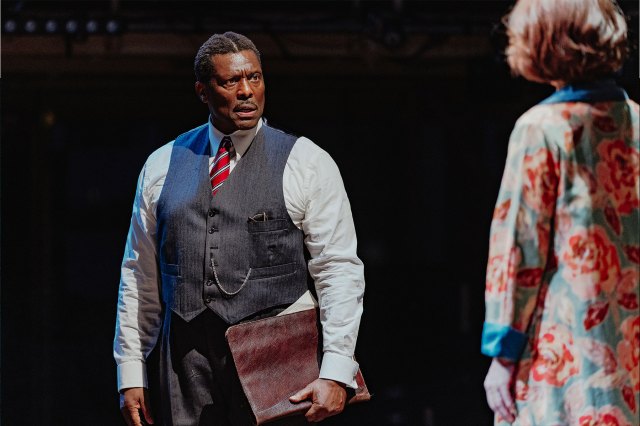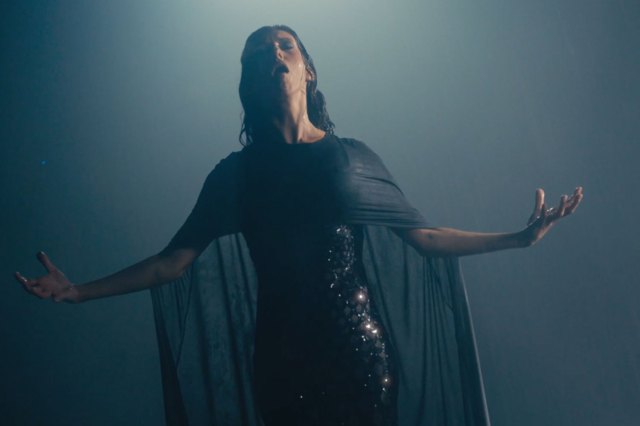Liberation at the Royal Exchange Theatre – review
Monique Touko’s production, running until 26 July, is part of the Manchester International Festival

Liberation is an emotionally resonant new work commissioned by the Royal Exchange Theatre that brings to life a pivotal moment in Black British and African history. Written by Ntombizodwa Nyoni and directed by Monique Touko, this world première shines a spotlight on the 1945 Fifth Pan‑African Congress in Manchester.
Nyoni’s vibrant script galvanises this sadly overlooked footnote in history into a living, breathing pivotal moment. She peels away the veneer of history to reveal real people present there who were shaping the future freedom of Africa while wrestling with personal ambition, ideology, love, and legacy.
Touko’s immersive staging uses the round to make the audience silent delegates, complicit witnesses, and potential heirs to the speeches and conversations onstage. The sound design by Alexandra Faye Braithwaite and Nick Lodge enhances this by creating the echo effect during the delegates’ orations, evoking the sense of being in an old auditorium. Paul Wills’ set design uses a simple tiered parquet floor to reflect the Town Hall, and the honeycomb design neatly suggests the Manchester worker bee and the many African states attempting to unite in shared strength.
Eamonn Walker delivers a compelling, no‑frills portrayal of the Trinidadian activist George Padmore, who organised the Congress. Eric Kofi Abrefa as Kwame Nkrumah and Leonie Elliott as Alma La Badie create the moral tension within the play as their youthful fervour clashes with the seasoned strategy of the old guard. Pamela Nomvete is a veritable powerhouse as the highly respected Amy Ashwood-Garvey, who is not afraid to show the complex and messy undercurrents of being a woman in politics. Rudolphe Mdlongwa as Makumalo Hlubi adds energy and humour with his exuberant approach to life. Tonderai Munyevua is excellent as Jomo Kenyatta, striding across the stage in furs and a dapper suit and cane as the wily nightclub owner who also effortlessly delivers political speeches that resonate and captivate.

This is an ambitious production with a strong cast who all have important roles within the narrative. Setting the scene for the audience to get a sense of these characters and their motivators requires the first act to use a lot of exposition as each delegate arrives for the Congress. There is a large amount of information to take in, but the writing and the pacing secure our attention. The second act really soars, as with all the characters now deftly drawn, the interplay between them is fascinating. The final photography scene is inspired. It doesn’t simply remind us they were real historical figures, but by capturing their images live on stage, they become seared in the memory of the audience.
Nyoni’s script probes the true psychological cost of activism, exploring the personal toll behind grand speeches. The result is less a tidy narrative than a lived archive, messy, hopeful, haunted, and all the more human for it. Liberation is a theatrical act of restitution. It wrests history from record and archive, drops it into our laps, and holds it there until we grapple with it. The Royal Exchange has birthed an ensemble piece that resonates far beyond its stage as intellectually, emotionally and politically relevant today as it was 80 years ago.
















